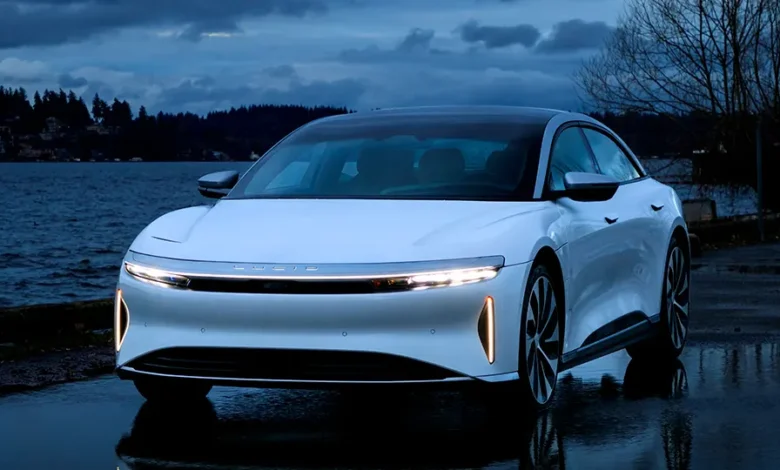The Impact of Electric Cars on Our Lives

Welcome to the electrifying world of electric cars! As technology propels us into a greener future, the buzz around electric vehicles is impossible to ignore. From sleek designs to zero-emission drives, electric cars are revolutionizing the way we think about transportation. Join us as we explore the impact of these eco-friendly wonders on our lives and the planet.
The Advantages of Electric Cars
Electric cars offer numerous advantages that make them an appealing choice for environmentally-conscious consumers. One of the key benefits is their zero-emission operation, which helps reduce air pollution and combat climate change. By using electricity as fuel, electric cars contribute to a cleaner and greener environment.
Another advantage of electric cars is their lower operating costs compared to traditional gasoline vehicles. With fewer moving parts and no need for oil changes, maintenance expenses are significantly reduced. Additionally, the cost of electricity is generally lower than gasoline prices, resulting in savings over time.
Electric cars also provide a quieter and smoother driving experience due to their silent motors and instant torque delivery. This makes for a more enjoyable ride without the noise and vibrations associated with internal combustion engines. Furthermore, many electric car models offer advanced technology features that enhance convenience and safety on the road.
The Environmental Impact of Electric Cars
Electric cars are revolutionizing the way we think about transportation. One of their most significant advantages is their positive impact on the environment. By producing zero emissions, electric cars help reduce air pollution and combat climate change.
The traditional vehicles that rely on fossil fuels release harmful greenhouse gases into the atmosphere, contributing to global warming and smog. In contrast, electric cars run on electricity stored in batteries, resulting in cleaner and healthier air for everyone.
Furthermore, as renewable energy sources like solar and wind power become more prevalent, charging electric cars with clean energy is becoming increasingly feasible. This shift towards sustainable energy production further enhances the environmental benefits of electric vehicles.
As more people make the switch to electric cars, we can look forward to a future where our daily commutes no longer harm the planet but instead contribute to a greener and more sustainable world.
Cost and Maintenance Comparison with Traditional Cars
When it comes to cost and maintenance, electric cars have been gaining popularity for their efficiency and affordability. Unlike traditional gas-powered vehicles that rely on fluctuating fuel prices, electric cars offer a more stable cost structure. With lower energy costs per mile compared to gasoline, electric car owners can save money in the long run.
Maintenance-wise, electric cars have fewer moving parts than internal combustion engine vehicles. This means less wear and tear on components like brakes and transmissions. As a result, maintenance costs are generally lower for electric cars since fewer parts need regular servicing or replacement.
Additionally, government incentives such as tax credits or rebates help offset the initial purchase price of an electric vehicle. These financial benefits make owning an electric car even more attractive from a cost perspective. The cost and maintenance advantages of electric vehicles contribute to their growing appeal among consumers looking for sustainable transportation options.
Infrastructure and Availability of Charging Stations
Electric cars have been gaining popularity, but one of the main concerns for potential buyers is the availability of charging stations. Fortunately, the infrastructure for electric vehicle charging has been rapidly expanding in recent years.
Many cities and businesses are installing public charging stations to accommodate the growing number of electric vehicles on the road. This makes it more convenient for drivers to charge their cars while they’re out and about running errands or travelling.
In addition to public charging stations, many electric car owners also choose to install a home charging station. This allows them to quickly charge their vehicles overnight and start each day with a full battery.
With advancements in technology, fast-charging stations are becoming more common as well. These chargers can significantly reduce the time it takes to recharge an electric car, making long journeys more feasible for drivers.
As the infrastructure for charging stations continues to improve and expand, range anxiety becomes less of an issue for those considering switching to an electric vehicle.
Government Incentives for Electric Car Owners
As electric cars continue to gain popularity, governments around the world are implementing various incentives to encourage their adoption. These incentives can range from tax credits and rebates to reduced registration fees for electric car owners. By offering these benefits, authorities aim to make owning an electric vehicle more attractive and affordable for consumers.
In addition to financial incentives, some governments also provide perks such as access to carpool lanes or free parking in designated areas for electric car owners. These additional benefits not only reward environmentally-conscious drivers but also help alleviate traffic congestion and promote cleaner transportation options.
Moreover, certain regions offer grants for installing home charging stations or supporting the development of public charging infrastructure. This initiative aims to address one of the common concerns among potential electric car buyers – the availability of convenient charging facilities.
By introducing these government incentives, policymakers hope to accelerate the transition towards sustainable transportation and reduce greenhouse gas emissions associated with traditional fossil fuel vehicles.
Potential Challenges and Solutions in the Future
As electric cars become more popular, challenges may arise that need to be addressed to ensure a smooth transition to a sustainable transportation future. One major challenge is the limited range of electric vehicles compared to traditional cars, which can cause range anxiety among drivers.
To tackle this issue, advancements in battery technology are crucial for increasing the driving range of electric cars and reducing charging times. Additionally, expanding the network of fast-charging stations along highways and in urban areas will help alleviate concerns about running out of power during longer trips.
Another challenge is the disposal of batteries once they reach the end of their lifespan. Developing efficient recycling methods for lithium-ion batteries will be essential to minimize environmental impact and maximize resource efficiency.
Furthermore, as more electric vehicles hit the road, there may be strains on existing electrical grids. Integrating innovative grid technologies and implementing time-of-use pricing strategies can help manage electricity demand from charging stations effectively.
Overcoming these challenges will require collaboration between automakers, governments, and energy providers to create a sustainable ecosystem for electric vehicle adoption.
Conclusion
The future of transportation with electric cars is undeniably bright. As technology continues to advance, we can expect even more efficient and affordable electric vehicles on the market. With the increasing focus on sustainability and reducing carbon emissions, electric cars are playing a crucial role in shaping the way we travel.
As infrastructure for charging stations improves and government incentives become more widespread, the transition to electric vehicles will only accelerate. While there may be challenges ahead, such as battery range and production costs, innovative solutions are constantly being developed to overcome these obstacles.
Electric cars have already made a significant impact on our lives by offering a cleaner and more sustainable alternative to traditional vehicles. The shift towards electric transportation represents not just a trend but a fundamental change in how we view mobility. Embracing this change will not only benefit the environment but also pave the way for a more sustainable future for generations to come.
Also, read more: What Are the Risks of Investing in FintechZoom Google Stock?

